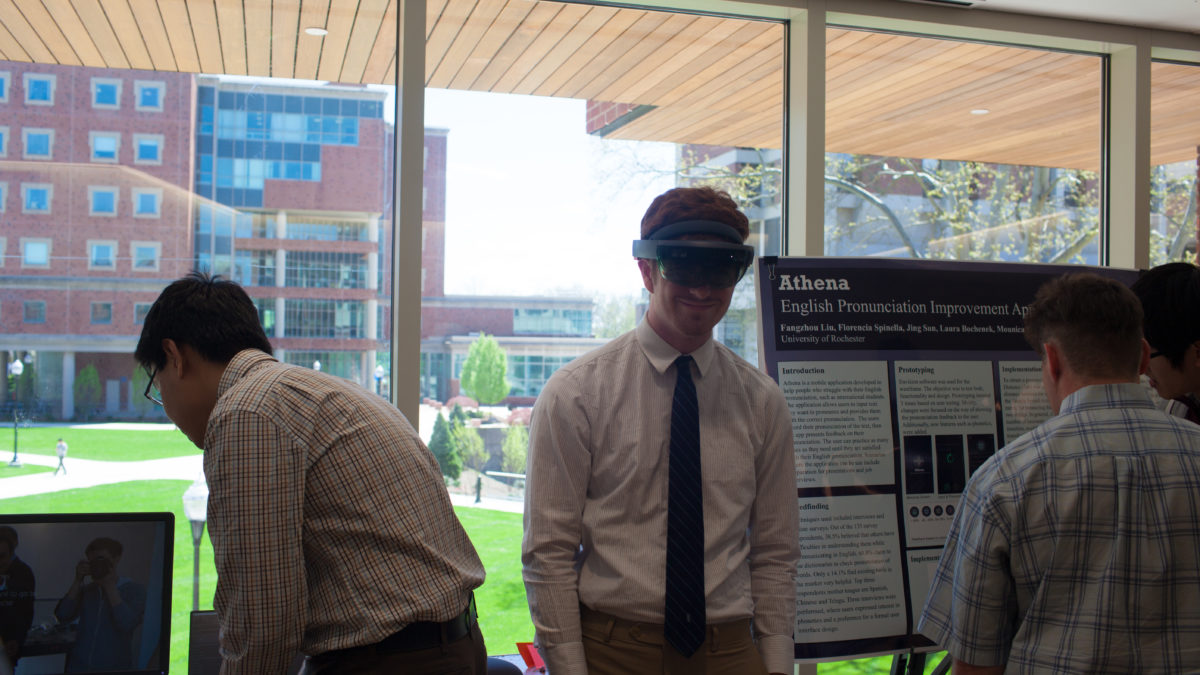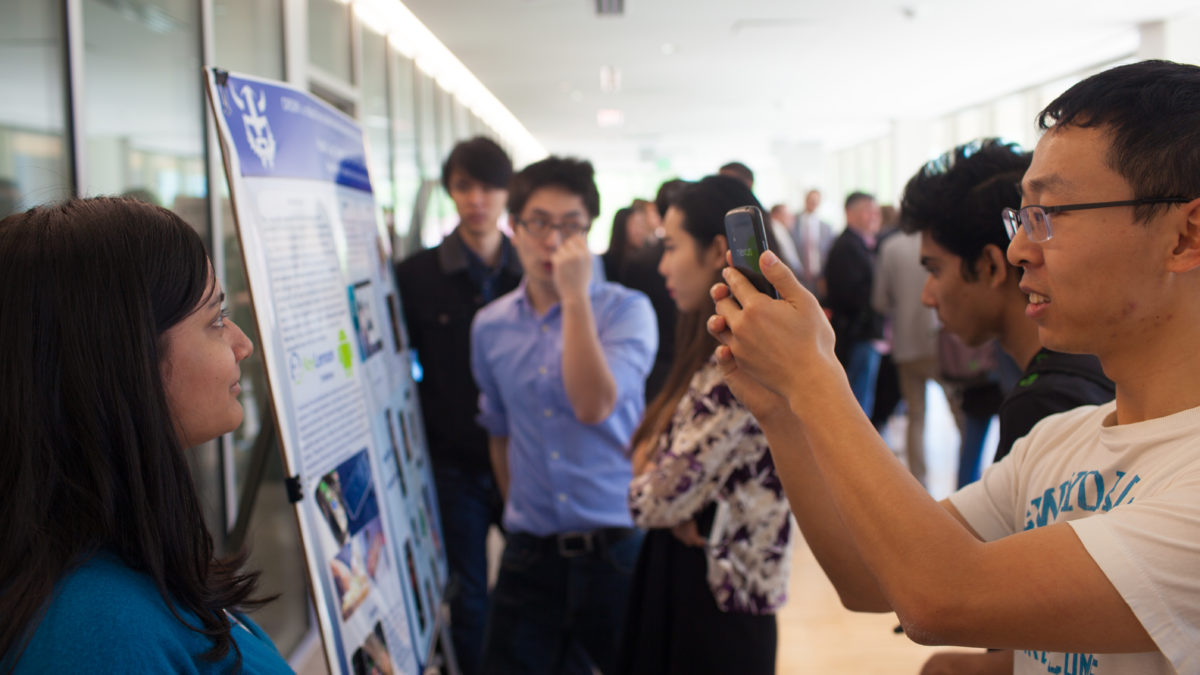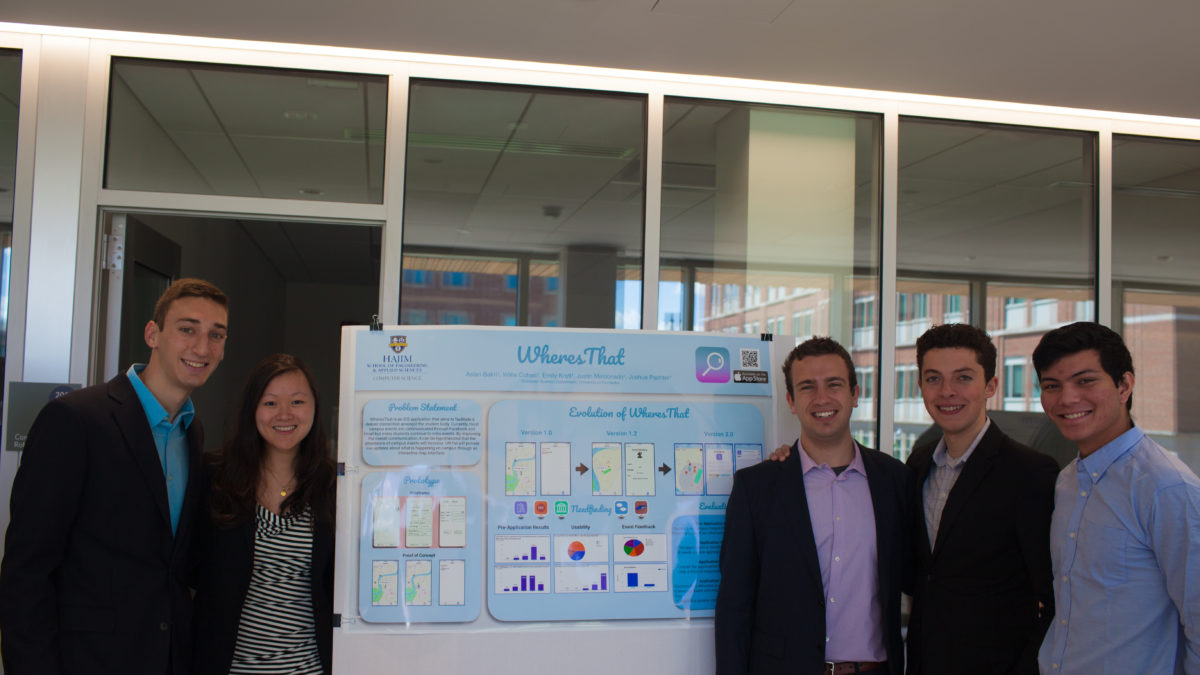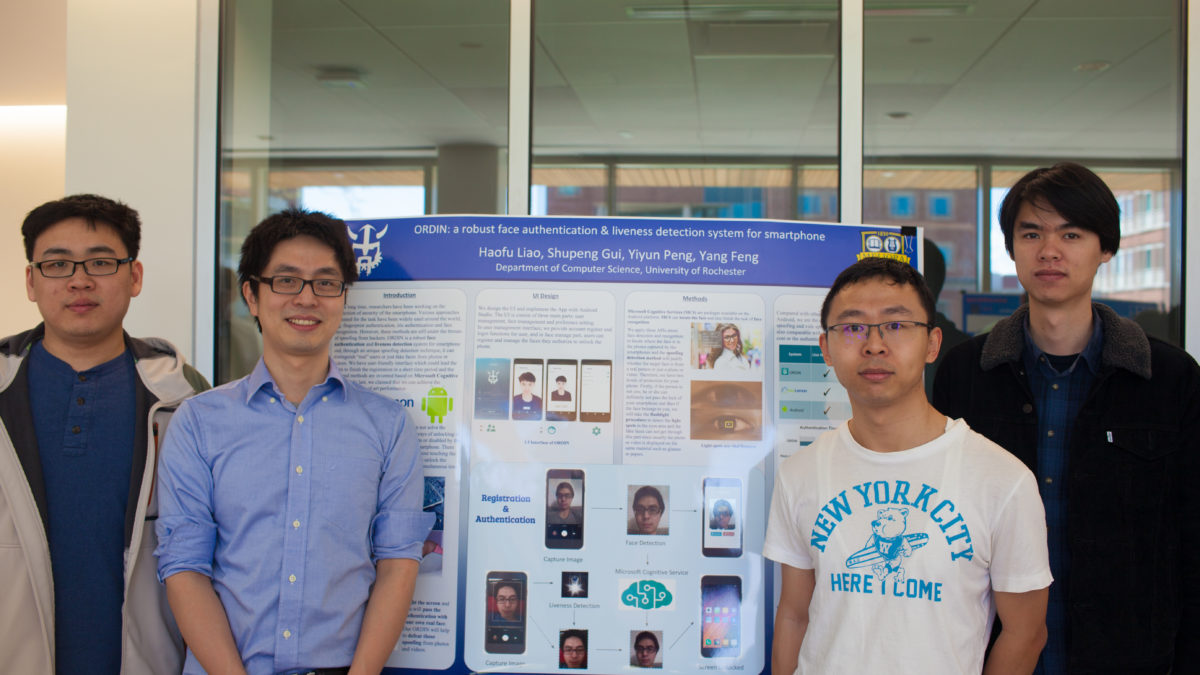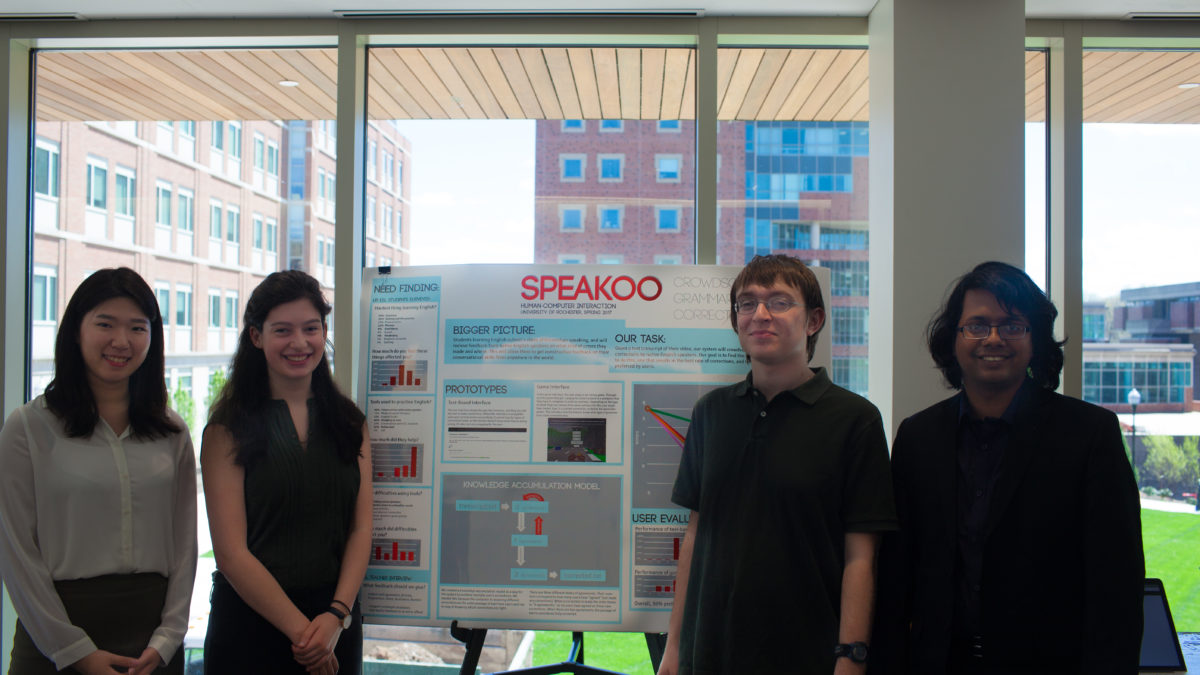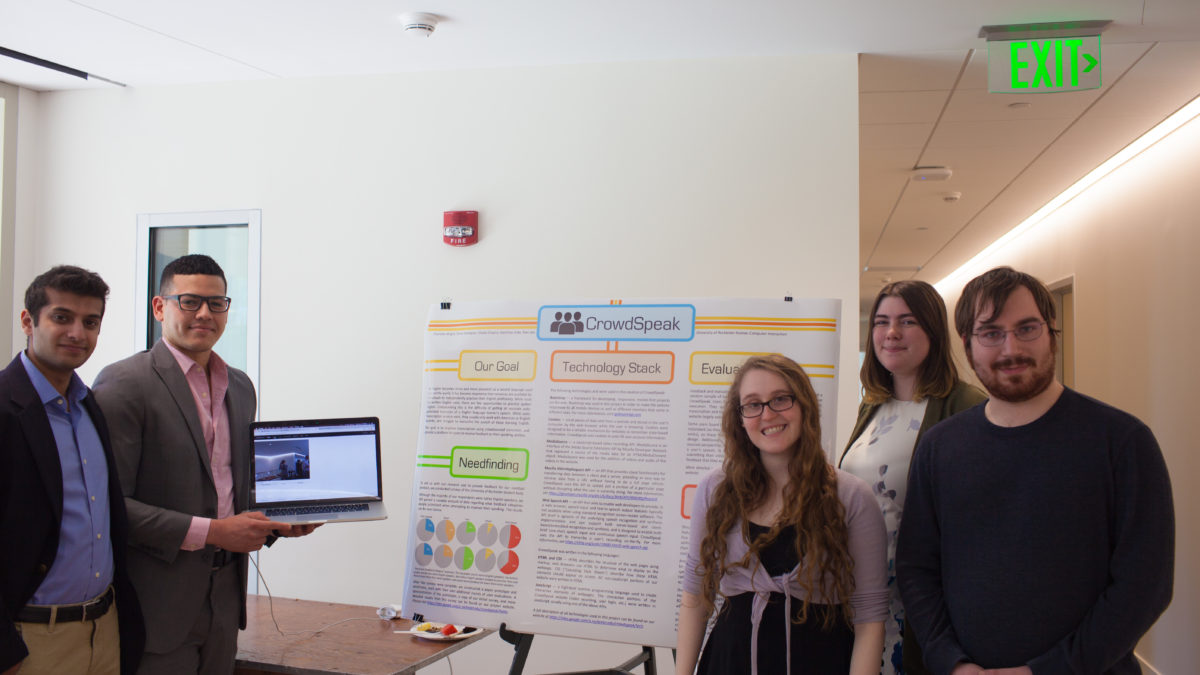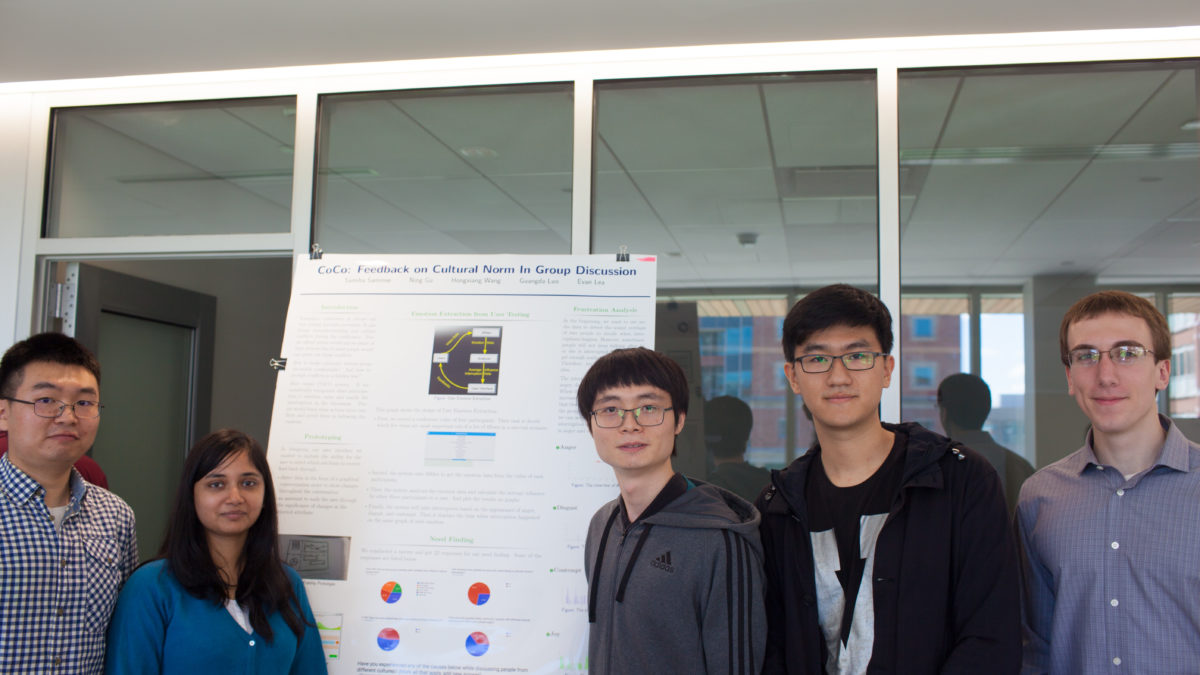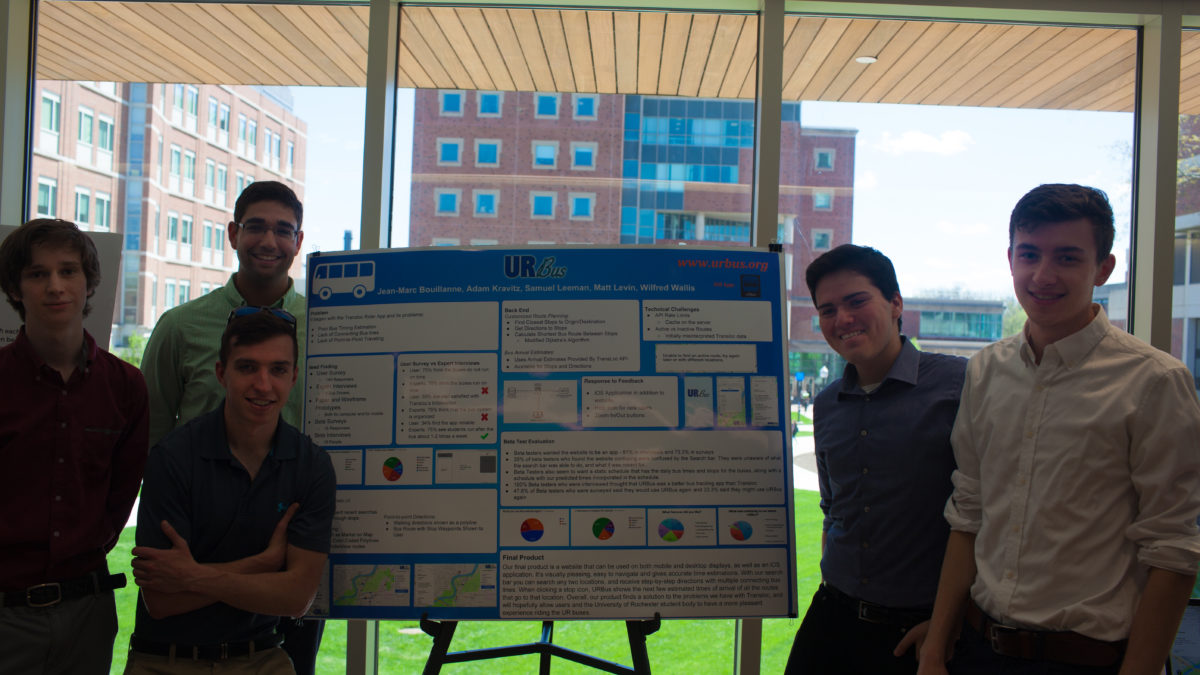Human-Computer Interaction class creates programs, apps to improve lives
In many traditional computer science classes, students acquire a specific set of technical skills such as programming or algorithm design. In Ehsan Hoque’s Human-Computer Interaction class, along with acquiring new technical skills, students spend time thinking creatively about computers and ways they can use computing to solve pressing problems in society.
Toward that goal, students in the class spend two months developing a technical product that could potentially be deployed in the wider world.
“In this class students are exposed to techniques from experimental psychology in order to understand the mental model of the users,” says Hoque, an assistant professor of computer science and head of the Human-Computer Interaction Lab at the University of Rochester. “This allows them to develop software that is closer to the users’ expectations. Students also learn techniques that allow them to objectively compare their design choices by validating them with real users.”
The students in the class presented their design projects in a showcase at Wegmans Hall in May, with live demonstrations of programs that included a mixed reality interface to help stroke patients, an app that gives live notifications on current events at the University, and programs to help non-native English speakers with pronunciation and grammar.
Read more at http://www.rochester.edu/newscenter/human-computer-interaction-class-creates-apps-programs-to-improve-lives/

